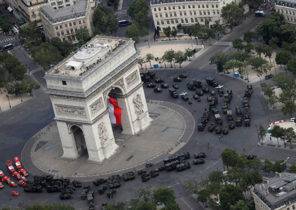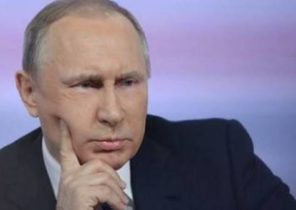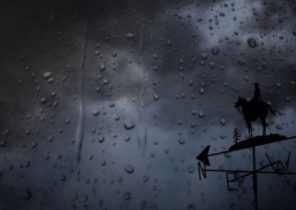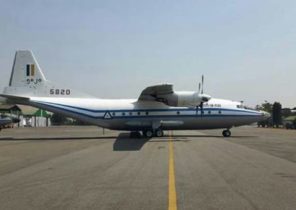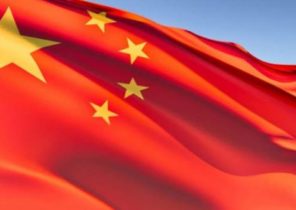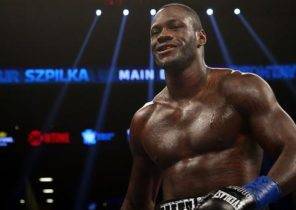
Direct Russian intervention in Ukraine and Syria, as well as the scandals associated with the presidential campaign in the United States overshadowed other ongoing power play Russia for its actions in the Balkans. It is not as loud and with less violence than other energetic steps of the Kremlin, but this does not in any way make it any less important within the renewal in the 21st century Great game.
As well as former constituent parts of the Russian Empire and the middle East, the Balkans have been for Russia a game. After the collapse of the Soviet Union, Russia was focused on herself and could only feebly protested at the time when the West ruled the section of the former Yugoslavia, in which were punished the traditionally Pro-Russian Serbs. Western view on these objections at the time were adequately described in recently declassified analytical document of the Central intelligence Agency, created in 1993:
“Some Russians ask why the West and the United States, in particular, needs to invade those places that Russia has traditionally considered its sphere of influence. In the modern world the West should not take this argument too seriously.”
However, the world is changing and not only due to the nostalgic efforts of Russian President Vladimir Putin. “The United States has for some time ceased to be a security provider,” said in December the Minister of foreign Affairs of Macedonia Nikola Poposki (Nikola Poposki) in an interview with the Austrian daily newspaper Der Standard. If the administration trump will be as isolationist as mentioned by trump during his presidential campaign, then already most of the European Union will have to support the current arrangements in the Balkans. Russia today feels quite confident in front of the face of fragmented and rather toothless Union. Therefore, its involvement in the Affairs of this region is becoming more and more predetermined.
Nikolai Patrushev, the head of Putin’s security Council, recently called the possible extension of the North Atlantic Treaty Organization and the inclusion of Montenegro, Macedonia and Bosnia are among the largest threats to Russia from the West. The Kremlin has witnessed as Bulgaria, once a key ally in the Balkans, joined NATO and the European Union, and subsequently torpedoed pipeline project to transport natural gas. All that Moscow can do is to support Pro-Russian political figures — such as the new Bulgarian President rumen Radev — and hope that he will be able to resist Western pressure.
Putin’s goal in relation to other Balkan countries is that, at least, keep them neutral and, if possible, to give them a real purgatory, when it comes to membership in the Western structures. For these purposes, Russia is in favour of the termination of the activities of the office of the high representative for Bosnia and Herzegovina. This structure was created in accordance with the Dayton agreement that ended the war in Yugoslavia, and today it is headed by Austrian Valentin Inzko (Valentin Inzko). Here is what was stated at this week’s press conference with Russian foreign Minister Sergei Lavrov:
“We repeatedly reminded our Western partners that it becomes indecent to keep in Bosnia and Herzegovina, which is considered to be an independent state, the so-called office of the High representative for Bosnia and Herzegovina, which has the rights of the Governor-General may impose and to the three constituent peoples of Bosnia and Herzegovina — Bosniaks, Serbs and Croats — all solution.”
In the Balkans, as in other areas, Russia is testing the boundaries and she is satisfied that it has strong allies among the Serbs — as in Serbia proper and in other parts of the former Yugoslavia. Lavrov zealously protects Milorad Dodik, President of Republika Srpska, part of Bosnia, and supports its continuing efforts to promote Serbian identity. Dodik, who emotionally speaks about his dream in the form of Serbian unity and he calls us Ambassador in the country “proved the enemy” of the Serbian population in the West is perceived as a troublemaker — the United States this week even imposed sanctions for obstructing implementation of the Dayton agreement, and Delano this was after he set up his own day of independence of the Bosnian Serbs. For Moscow it is a useful tool to reduce the influence of the West in Bosnia, and perhaps even to split this state. Adopted by Russia in December last year the decision on payment of the Bosnia part of the Soviet debt to Yugoslavia in the amount of $ 125 million is the most direct form of assistance Dodik from Moscow, which continues to say that she supported the Dayton agreement.
Russia was very interested bystander of the incident on the first train, directed from Belgrade, capital of Serbia, in the district of Mitrovica, inhabited by Serbs, a city in the North of Kosovo. “Kosovo is Serbia” was written on made in Russia train, in 21 languages, and it is so much angered by the Kosovo authorities that they stopped the train at the border and sent him back. Nothing new in the slogan is — Serbia together with many other countries does not recognize Kosovo. However, the President of Kosovo, Hashim Thaci was heavily annoyed by this provocation and accused the Serbs in the preparation of the “Crimean scenario” to capture the Northern part of his country.
There is a paradoxical situation. The West’s recognition of Kosovo was the precedent used by Russia to justify an illegal referendum, which led to a formal Russian takeover of Crimea. However, the Russian allusion is entirely appropriate. Lavrov boasted at his press conference that his Serbian colleague called him the day of the incident with the train, and explained to him what is happening. In addition, the Russian Minister for foreign Affairs sided with the Serbs said that the Kosovo authorities had no right to stop this train.
Serbia is not fully Pro — she, ultimately, is a candidate for accession to the European Union and more than 40% of the population support such a move. However, Russia spends military exercises (last held in November last year), and the majority of Serbs are sympathetic to Russia because of historical ties and the deep distrust towards NATO. In other former States were part of Yugoslavia, where Russia has no open allies such as Nikolic and the same broad support among the population, its influence is not in such an open manner.
Russia supports Putin-style regime in Macedonia, and considering she held there in 2015 protests against him as an attempt of the West to seize the country. In Montenegro, where the government is Pro-Western government and about half of the population supports membership in the Western structures, the Russian in last year accused of plotting a coup and assassinations of senior officials. These accusations could be a political ploy, however, Russia has clearly expressed its interest in keeping Montenegro outside NATO.
In one form or another, Russia is involved in the Affairs of all the Balkan Nations, and its participation becomes more active. It includes the use of propaganda machine in the Serbian language, as well as a network of local friendly non-profit organizations and mass media. If the situation escalated, in this case, it will be impossible to completely eliminate the possibility of its political and military intervention. Unlike his predecessor in the 1990s, the years of Boris Yeltsin, Putin does not believe in what spheres of influence are obsolete concept.

